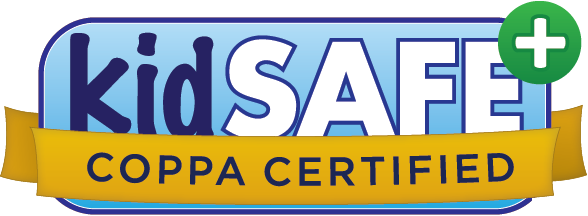As a parent, you want your child to be happy and healthy. One way to ensure that is by paying attention to their digestive health. Digestion problems in kids can lead to pain, irritability, and even affect their long-term development.
For this post, we collaborated with Dr. Barbara Gablehouse, a retired (award-winning) pediatrician and member of our Board of Educators. Dr. Gablehouse answers some commonly asked questions about child digestion and shares tips on improving your child’s digestive health.
How to tell if your child has digestion problems
Children may not always be able to communicate their digestive issues clearly, so it’s up to parents to look for signs.
Common signs of digestion problems in children include:
- Poor appetite
- Frequent complaints of stomach pain
- Bloating and gas
- Diarrhea
- Constipation (firm stools that are painful or difficult to pass—not just infrequent)
Furthermore, Dr. Gablehouse explains that “chronic constipation is one of the most common digestive problems in children.”

What causes poor digestion in kids?
Dr. Gablehouse explains that “inadequate amounts of fruits and vegetables is a common cause of digestive issues” and that “a diet with excessive amounts of constipating foods is also common in young children.”
In fact, some of the most constipating foods for kids may include rice, bananas, cheese, and apple products.
Important factors of child digestion are:
- Diet: A diet high in processed foods and a lack of fiber can lead to digestive problems.
- Dehydration: Not drinking enough fluids can cause constipation and other digestive issues.
- Stress: Emotional stress is a large factor in tummy issues in children (and adults!).
- Food allergies or intolerances: Certain foods like dairy or gluten may affect digestion.
- Medical conditions: Celiac disease or Crohn’s disease requires medical investigation to be confirmed. These conditions require life-long avoidance of gluten-containing products—it’s necessary to consult with a doctor to confirm these issues.
Improving your child’s digestion
Hidden in plain sight! One of Dr. Gablehouse’s suggestions for improving your child’s digestion is to “hide” good foods in foods that your child is willing to eat.
She encourages parents to:
- Puree spinach and mix it in spaghetti sauce.
- Finely chop carrots and zucchini into a muffin mix.
- Make “jelly” out of pureed fruit (no added sugar or pectin) and use the pureed fruit instead of jarred jellies on a sandwich.
- Offer yogurt or dairy drinks with active cultures, including bifidobacteria and lactobacillus. They’re delicious mixed with dry cereals in place of milk!
In addition to encouraging a healthy diet, you can promote physical activity, help your child manage stress, and ensure they get enough sleep to help regulate their digestive system! Lots of fluids, regular exercise, mindfulness exercises, and night time routines are all practices that can contribute to happy tummies.
Click here for more support on regulating your child’s physical and mental health.
How much gas is too much gas?
“We’re all “gassy” from time to time,” explains Dr. Gablehouse. “But a child (or anybody really) who is always gassy may need more attention.”
She advises that parents can try an elimination diet with kids:
- Try eliminating dairy products, wheat, beans, and cabbage from the child’s diet for at least a week.
- If the gassiness improves, add back wheat for a week, then dairy for a week, then beans for a week, and finally cabbage products for a week.
- Adding the foods back one at a time should give a clue if the gassiness is from a dietary cause.
Overall, it’s normal for young children to be gassy. As their digestive system is still developing, they may not be able to digest certain foods properly. Also, young children tend to swallow more air than adults when eating or drinking, which can lead to excess gas.
In addition, Dr. Gablehouse recommends that “if there is no improvement after an elimination diet, it’s probably time to see if the child has a more serious underlying disorder.”

When to see a doctor
If your child experiences severe or persistent digestive problems, it’s important to consult a doctor.
A physician should be consulted urgently for:
- Bloody stools
- Escalating abdominal pain with fever and tender-to-touch belly
- Severe or chronic diarrhea or constipation
- Unexplained weight loss
Gas relief remedies for kids
According to Dr. Gablehouse, “for occasional gas, Simethicone is acceptable and often available in pediatric formulation, sometimes combined with an antacid.”
She explains that, “an antacid alone is not likely to solve a gas problem. Some medications sold for digestive problems contain salicylic acid, which should NEVER be given to children.”
Natural and quick gas relief remedies that may help alleviate discomfort for kids include:
- Giving a warm bath
- Encouraging physical activity, such as gentle stretching or yoga poses
- Massaging your child’s belly in a circular motion
In conclusion, paying attention to your child’s digestive health can have a big impact on their overall well-being. By encouraging a healthy diet, staying hydrated, promoting physical activity, managing stress, and ensuring adequate sleep, you can help improve your child’s digestion.
And if you have any concerns about your child’s digestive health, don’t hesitate to consult a doctor!

More about Lingokids
The Lingokids universe provides original, award-winning, interactive content for kids, transforming the way kids can learn. Lingokids creates games, songs, podcasts, videos, and activities that intertwine educational subjects with modern life skills to spark curiosity, imagination, and success in school—and beyond!
Interested in learning more about how Lingokids helps families raise amazing kids? Download the app and check out more content on our YouTube channels!
What are your gas relief remedies for kids?
Let us know by commenting below!






